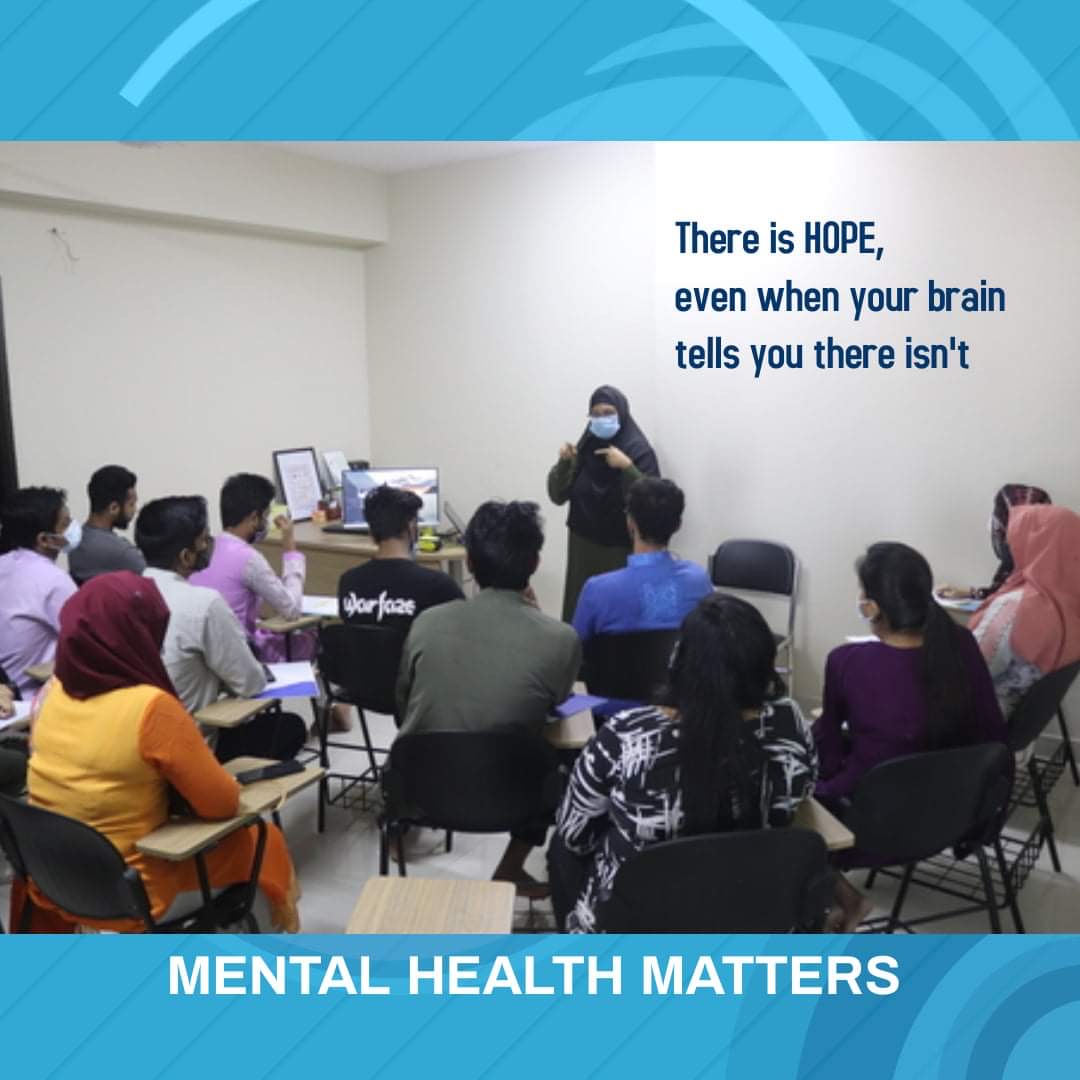In Bangladesh, a country where mental health remains a deeply stigmatized issue, young people face significant challenges. According to World Health Organization (WHO) estimates, 10.2% of the nation’s population of teenagers grapple with suicidal behavior, stress, loneliness, and depression. Among them was Tanzeel, a young activist navigating the tumultuous transition from adolescence to adulthood.
These early years of Tanzeel’s life were filled with confusion and anxiety over what he wanted to do in his life and what path he was to follow. He succumbed to pressure and confusion, which resulted in him experiencing a severe case of depression and anxiety, thereby negatively impacting his mental health.
In Bangladesh, where discussing mental health is often considered taboo, Tanzeel struggled to find the support he desperately needed. The societal stigma surrounding mental health issues created a barrier, making it difficult for him to seek help and exacerbating his condition.
Amidst these challenges, Tanzeel discovered a powerful coping mechanism in volunteerism. Engaging in volunteer activities provided him with a sense of purpose and allowed him to practice kindness, which became a therapeutic outlet for his anxiety and depression. The onset of the COVID-19 pandemic further highlighted the mental health struggles of his peers. Observing that many were suffering in silence due to fear of societal judgment, Tanzeel recognized a pervasive social issue that needed urgent attention.
Determined to address this problem, Tanzeel embarked on a mission to break the silence surrounding mental health in his community. He founded “Ogrograhi,” a social initiative aimed at promoting mental health awareness and education. The cornerstone of this initiative was organizing the first-ever mental health education workshop for teenagers in his city. This groundbreaking event brought together 100 adolescent boys and girls, providing them with a platform to learn about mental health, share their experiences, and seek support.
Ogrograhi’s impact did not stop there. The organization is committed to fostering a supportive environment for young people to address their mental health needs. By promoting kindness activities, such as food and clothing distribution to orphans and climate-induced disaster-affected communities, Ogrograhi encourages young individuals to engage in actions that uplift others and themselves, creating a ripple effect of positivity within the community. The initiative also emphasizes peer education, recognizing that young people can often relate to and support each other in ways that adults may not.
To broaden its reach, Ogrograhi is developing a virtual platform that will offer mental health services to young people across Bangladesh. This platform aims to provide accessible and confidential support, bridging the gap created by stigma and fear of judgment. Peer counseling sessions are also being introduced, enabling teenagers to receive guidance and support from trained peers who understand their struggles.
Tanzeel’s efforts have not gone unnoticed. His dedication to mental health advocacy has sparked a conversation in his community, challenging long-held taboos and encouraging others to speak openly about their mental health. By creating safe spaces for dialogue and support, Ogrograhi is paving the way for a future where mental health is treated as equally as physical health.
The organization’s mission to promote kindness, peer support, and accessible mental health services is not only helping individuals cope with their challenges but also fostering a more compassionate and understanding society.
In a country where mental health issues have long been ignored or misunderstood, Tanzeel and Ogrograhi are making significant strides toward change. Their work serves as a beacon of hope, demonstrating the power of youth activism in tackling critical social issues. As Ogrograhi continues to grow and evolve, it holds the promise of a brighter, more inclusive future for mental health in Bangladesh.



















